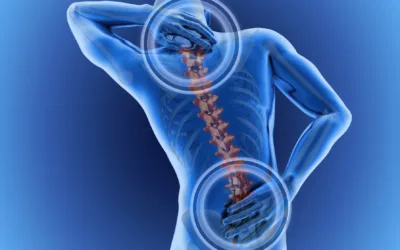Did you know that over 50 million adults in the United States suffer from chronic pain, body pains, and body aches daily? Pain management is a significant concern for many, leading them to seek alternative remedies like homeopathic treatments. Whether it’s migraines, arthritis, or back pain bothering you, there might be a natural solution like homeopathic medicine waiting to provide relief.
Homeopathy offers a range of options that may help alleviate various types of discomfort. Join us as we delve into the world of homeopathic remedies and homeopathy, and discover how these natural solutions can potentially offer relief from your everyday body aches.
Understanding Homeopathy For Pain Relief
How Homeopathy Works
Homeopathy, a holistic approach to pain relief, taps into the body’s natural healing abilities. Highly diluted substances are used in homeopathic remedies to trigger the body’s self-healing response. This method believes that homeopathy “like cures like,” where homeopathic medicines causing symptoms in a healthy individual can alleviate similar symptoms in an ill person.
Homeopathy operates on the principle that minuscule doses of homeopathic medicines can prompt the body to heal itself. These remedies aim not just at treating pain but also at addressing its root cause. For instance, Arnica montana is commonly used for muscle soreness and bruising due to injury.
Common Homeopathic Remedies for Pain Relief
- Arnica Montana: Ideal for muscle soreness or bruising from injuries.
- Hypericum Perforatum: A medicine effective for nerve pain such as sciatica or sharp shooting pains.
- Rhus Toxicodendron: Helpful for joint stiffness and rheumatic pains worsened by immobility but improved with movement.
- Bryonia Alba: Suitable for sharp, stitching pains in patients, aggravated by movement but relieved by rest.
- Magnesia Phosphorica, a homeopathic medicine, is useful for cramping or shooting nerve pains often seen in menstrual cramps.
It’s crucial to consider your specific body pains and how they manifest individually because different types of pain require different treatments tailored specifically to each situation.
Exploring Homeopathic Remedies For Different Types Of Pain
Effective Homeopathic Remedies
Homeopathic remedies are known to be effective for various types of body pains, such as headaches, menstrual cramps, and muscle strains. For instance, Arnica montana is commonly used for body pains related to bruises, sprains, and trauma. This remedy helps reduce bruising and swelling caused by injuries or trauma.
Homeopathy also offers Hypericum perforatum as a solution for nerve pain like sciatica or neuralgia. This remedy is beneficial in managing the discomfort associated with nerve-related pains. It can provide relief from shooting or sharp pains resulting from nerve issues.
Benefits Of Using Homeopathic Remedies
- Natural approach to pain management
- Reduced reliance on analgesic medication
- Suitable for individuals seeking complementary medicine options
Considerations When Choosing Homeopathic Remedies
When selecting homeopathic remedies for different types of pain, it’s essential to consider the specific symptoms experienced. For example, if someone is dealing with postoperative pain after surgery, they might benefit from Arnica montana due to its ability to address bruising and soreness post-surgery.
For joint pains like those experienced in carpal tunnel syndrome or arthritis, Rhus Toxicodendron could be a suitable option in homeopathy. This remedy targets joint stiffness and discomfort that worsens with initial movement but improves with continued motion.
In cases where inflammatory properties play a role in causing pain due to exertion or overuse injuries, Ruta graveolens may offer relief by addressing both the inflammatory response and the associated discomfort.
Tips For Using Homeopathic Remedies Effectively:
- Consult with a qualified homeopath before trying any new homeopathy remedies.
- Follow dosage instructions carefully.
- Monitor your symptoms closely after taking a remedy.
- Keep track of any changes you experience while using homeopathy treatments for body pains and aches.
Treating Rheumatoid Arthritis With Homeopathy
Alleviating Pain And Inflammation
Homeopathic treatment for rheumatoid arthritis focuses on easing body pains, reducing inflammation, and enhancing joint mobility. Patients often seek relief from the discomfort and body aches caused by this chronic condition. Homeopathic remedies like Rhus Toxicodendron, Bryonia alba, and Causticum are commonly prescribed to address RA symptoms.
Individualized treatment plans are crucial in homeopathy because each patient’s experience with rheumatoid arthritis varies. For instance, a person experiencing severe stiffness may benefit more from one remedy over another that targets swelling. By tailoring the treatment to specific symptoms, homeopaths can effectively manage the diverse manifestations of rheumatoid arthritis.
Personalized Treatment Plans
In homeopathy, understanding the unique characteristics of a patient’s pain is key to selecting the most suitable remedy. For example:
- Rhus Toxicodendron is often recommended for individuals who feel better after moving around but experience stiffness upon initial body movement.
- Bryonia alba may be suggested for patients whose pain worsens with motion and improves when at rest.
- Causticum could be indicated for those suffering from weakness in muscles or tendons alongside joint pain.
Natural Homeopathic Remedies For Body Pains And Aches
Ruta Graveolens: Overexertion And Repetitive Strain Injuries
Ruta graveolens is a commonly used homeopathic remedy for body pains caused by overexertion or repetitive strain injuries. This natural medicine can help alleviate the discomfort associated with these body conditions, such as soreness in the muscles and joints. For individuals experiencing joint pains in the body due to excessive physical activity or strain from repetitive movements, Ruta graveolens may offer relief.
Pros:
- Effective for muscle and joint soreness
- Suitable for overuse injuries
Cons:
- May not be as effective for other types of body pain
Magnesia Phosphorica: Muscle Cramps And Spasms
For those suffering from muscle cramps and spasms, Magnesia Phosphorica is a popular choice in homeopathy. This remedy is known for its ability to ease the intensity of muscle cramps in the body, providing comfort to individuals experiencing such issues. Whether it’s leg cramps at night or spasms in various parts of the body, Magnesia Phosphorica can be beneficial.
- Start by consulting with a homeopathic practitioner.
- Follow the recommended dosage based on your symptoms.
- Monitor changes in your condition after taking Magnesia phosphorica.
Belladonna: Sudden Intense Pains With Redness And Heat
When sudden intense body pains are accompanied by redness and heat, Belladonna may be suggested as a suitable homeopathic remedy. This natural medicine has properties that target acute pain symptoms characterized by their abrupt onset and severity. By addressing both the pain sensation itself along any visible signs like redness or warmth around affected areas, Belladonna offers holistic relief.

Key Studies And Research Evidence On Homeopathic Efficacy
Positive Results In Using Homeopathy For Pain Relief
Studies have shown that homeopathy can be effective in alleviating various types of pain. For instance, a systematic review published in the British Journal of Clinical Pharmacology highlighted the positive effects of homeopathic remedies on chronic pain conditions. While more research is necessary to fully understand its mechanisms, these findings provide promising evidence supporting homeopathic remedies as an alternative method for managing pain in the body.
Homeopathy’s efficacy has been demonstrated through clinical trials and laboratory studies. These investigations have revealed significant clinical effects when using homeopathic treatments for different types of pain. By analyzing outcomes from placebo groups and observational studies, researchers have found compelling evidence indicating the potential benefits of incorporating homeopathic remedies into pain management strategies.
Mechanisms Behind Homeopathic Remedies’ Effectiveness
Research suggests that homeopathic remedies may operate through intricate pathways within the body, including interactions with the immune system and neuroendocrine processes. These complex mechanisms play a crucial role in how homeopathy influences various types of pain experienced by individuals. By understanding these underlying processes better, healthcare providers can tailor treatment plans to address specific needs effectively.
Pros:
- Effective in alleviating different types of pain.
- Supported by clinical trials and laboratory studies.
- Utilizes complex mechanisms involving immune system interactions.
Cons:
- More research needed to fully comprehend effectiveness.
Safety And Regulation Of Homeopathy
Safety Of Homeopathic Remedies
Homeopathic remedies are generally safe when used correctly. They are highly diluted, making side effects minimal. Health risks associated with homeopathy are low due to the extreme dilution process. It is crucial to follow recommended dosages for optimal safety.
When using homeopathic medicines, individuals typically experience fewer adverse reactions compared to conventional drugs. The gentle nature of these remedies makes them suitable for various age groups, including children and the elderly. Despite their safety profile, it’s essential to seek guidance from a qualified practitioner before starting any treatment.
Regulation By FDA
In the United States, the Food and Drug Administration (FDA) oversees homeopathic products’ regulation. This regulatory body ensures that medicines meet specific manufacturing standards set for quality control purposes. By regulating these products, the FDA aims to maintain consistency in production practices across different manufacturers.
The FDA’s involvement in overseeing homeopathic remedies helps safeguard consumer health by monitoring product quality and labeling accuracy. Through strict regulations, consumers can have confidence in the safety and effectiveness of these alternative treatments when used appropriately.
Finding A Qualified Homeopathic Practitioner
Licensed Or Certified Homeopathic Practitioner
When seeking the best homeopathic remedies for different types of pain, it is crucial to find a homeopathic practitioner who holds proper licensing or certification from a reputable organization. This ensures that the practitioner has undergone necessary training and meets specific standards in providing homeopathic care. Licensed professionals are more likely to adhere to ethical guidelines and offer safe, effective treatments.
It’s essential to verify the credentials of a homeopathic provider before seeking treatment for pain relief. Ask about their certifications, licenses, and any additional training they may have received in treating various pain conditions. By choosing a licensed or certified professional, you can have confidence in their expertise and ability to recommend suitable remedies tailored to your specific needs.
Recommendations From Trusted Sources
To find the most suitable homeopathic practitioner for addressing your pain concerns, consider seeking recommendations from trusted sources such as friends, family members, or healthcare professionals. Personal referrals can provide valuable insights into the quality of care offered by a particular practitioner and their success in treating different types of pain effectively.
Trusted recommendations help you narrow down your search for a skilled homeopathic medicine specialist who has experience in managing various pain conditions. Friends or family members who have benefited from homeopathy for pain relief can share their positive experiences with practitioners who helped alleviate their symptoms successfully. Healthcare professionals familiar with homeopathy can offer valuable guidance on selecting qualified practitioners known for delivering excellent results in managing pain through alternative therapies.
Conditions Responsive To Homeopathic Treatment
Various Conditions Addressed
Homeopathy is not just about pain relief; it extends its benefits to allergies, digestive disorders, and respiratory illnesses. Beyond these, conditions like fibromyalgia, migraines, and arthritis have found relief through homeopathic remedies. These treatments go beyond merely alleviating symptoms; they aim to address the root cause of the ailment.
Homeopathy’s approach involves tailoring treatment plans to each individual, considering their unique set of symptoms and underlying causes. By focusing on the specific needs of each patient, homeopathic practitioners create personalized remedies that target the source of the issue rather than just masking symptoms. For instance, someone suffering from hay fever may receive a different remedy compared to another with digestive issues.
Importance Of Individualized Treatment Plans
The emphasis on individualized treatment in homeopathy sets it apart from conventional medicine. While traditional healthcare often treats conditions based on standardized protocols, homeopathy recognizes that every person’s experience with an illness can vary greatly. This tailored approach ensures that patients receive precise care targeting their specific symptom picture.
In fibromyalgia cases where patients experience widespread pain and stiffness, a homeopath would consider not only these physical symptoms but also factors like how cold air affects them or if there is any accompanying emotional distress. By delving into such details during consultations, practitioners gather a comprehensive understanding of the patient’s condition before prescribing suitable remedies tailored to their unique properties.
Risks And Side Effects Of Homeopathy
Temporary Aggravation Of Symptoms
Some individuals may experience a temporary aggravation of symptoms after taking homeopathic remedies. This means that the symptoms might worsen before getting better. For instance, if someone takes a homeopathic remedy for a headache, they might initially feel an increase in headache intensity.
In such cases, it’s essential to understand that this temporary worsening is often considered part of the healing process in homeopathy. It typically indicates that the body is responding to the remedy and initiating its healing mechanisms. However, if these aggravated symptoms persist or become severe, seeking advice from a qualified healthcare provider is crucial.
Rare But Possible Serious Adverse Effects
Although serious adverse effects from properly prescribed homeopathic remedies are rare, they are still possible. These adverse events could include allergic reactions or unexpected responses to certain remedies. For example, someone might develop skin rashes or gastrointestinal disturbances after taking a specific homeopathic preparation.
While these occurrences are uncommon, it’s vital to be aware of them and monitor any unusual reactions carefully when using homeopathy for pain management or other conditions. If you experience any concerning side effects after taking a homeopathic remedy, seek medical attention promptly.
Coordination With Healthcare Provider
Informing your healthcare provider about any ongoing homeopathic treatment is crucial for ensuring proper coordination of care. Your doctor needs to have a comprehensive view of all treatments you are undergoing to provide you with safe and effective care without potential interactions between conventional medicine and homeopathy.
Maintaining open communication with your healthcare team allows them to monitor your progress accurately and make informed decisions regarding your treatment plan. By sharing information about your use of homeopathy, you enable your providers to offer personalized care tailored to your individual needs while minimizing risks associated with combining different therapeutic approaches.
Closing Thoughts
You’ve now delved into the world of homeopathy for pain relief, discovering various remedies for different types of pain. From rheumatoid arthritis to body aches, you’ve explored natural solutions backed by studies and evidence. Understanding the safety, regulation, and risks involved is crucial when seeking a qualified practitioner for conditions responsive to homeopathic treatment.
Now armed with knowledge about homeopathy’s efficacy and potential benefits, it’s time to take action. Consider consulting a reputable homeopathic practitioner to explore personalized remedies for your specific pain issues. Embrace the holistic approach of homeopathy and its gentle yet potent effects on your well-being. Your journey to natural pain relief starts now!
Frequently Asked Questions
1. What Is Homeopathy And How Does It Work?
Homeopathy is a natural form of medicine that uses highly diluted substances to stimulate the body’s self-healing mechanisms. It works on the principle of “like cures like,” where a substance that causes symptoms in a healthy person can be used to treat similar symptoms in an ill person.
2. Is Homeopathy Effective For Treating Different Types Of Pain?
Yes, homeopathy has been found to be effective in managing various types of pain, including arthritis, headaches, and muscle pains. Many individuals have reported significant relief from their pain symptoms after using homeopathic remedies tailored to their specific condition.
3. Are There Any Risks Or Side Effects Associated With Using Homeopathic Remedies For Pain Relief?
While generally considered safe when prescribed by a qualified practitioner, some individuals may experience mild aggravations or allergic reactions. It’s important to consult with a trained homeopath before starting any treatment regimen and disclose any existing health conditions or medications you are taking.
4. How Can I Find A Qualified Homeopathic Practitioner For My Pain Management Needs?
To find a reputable homeopath, consider seeking recommendations from trusted sources such as friends, family members, or healthcare professionals. Verify the practitioner’s credentials and inquire about their experience with treating your specific type of pain before making an appointment.
5. Can Homeopathy Be Used Alongside Conventional Treatments For Pain Relief?
Yes, many people use homeopathic remedies in conjunction with conventional treatments to manage their pain effectively. However, it’s crucial to inform all healthcare providers involved in your care about the complementary therapies you are using to ensure they do not interfere with each other.

Harnessing The Power Of Homeopathy In Pain Management: Experience Relief And Healing With MedicinEvolution’s Innovative Approach!
Are you grappling with chronic pain, sports injuries, or seeking to enhance your overall well-being? MedicinEvolution stands at the forefront of integrating homeopathy with pain management techniques to guide you toward a state of improved health and comfort. By embracing the principles of homeopathy, MedicinEvolution addresses the underlying causes of your pain, promoting a natural and holistic recovery process. Wave goodbye to the challenges of chronic discomfort, sports-related injuries, and the repetitive stress that impedes your daily activities—as MedicinEvolution taps into the unique needs of your body, leading you to significant relief and healing. Their carefully formulated homeopathic treatments are designed to shift you away from the pain and limitations that constrain your quality of life.
If you’re battling with persistent pain, injuries, or obstacles to achieving optimal health, MedicinEvolution’s specialized approach, grounded in the harmony of homeopathy and pain management, is specifically crafted for you. Don’t allow the struggles of chronic pain or injury to set the limits of your well-being—take the step forward and schedule your consultation with MedicinEvolution today! Embark on a journey with their homeopathy-centered treatments and start moving toward a more pain-free, resilient, and health-enhanced life. Your body and mind, liberated from the grips of pain, will be grateful for the transformation!





